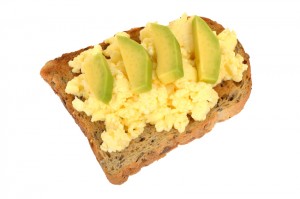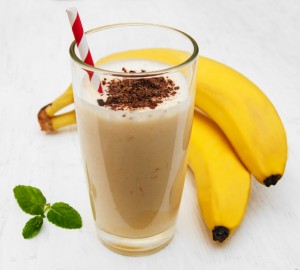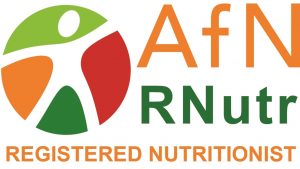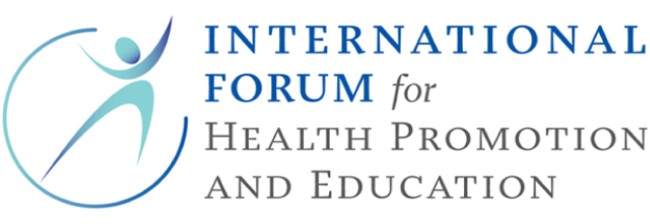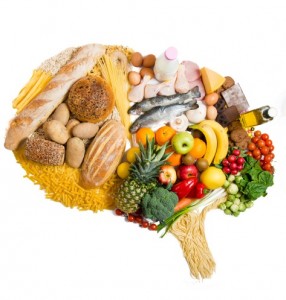 Travelling takes a lot out of us, both mentally and physically, so we need to make sure we prepare ourselves as much as possible when undertaking business trips.
Travelling takes a lot out of us, both mentally and physically, so we need to make sure we prepare ourselves as much as possible when undertaking business trips.
Our diet has a huge impact on the way we feel and perform:- if we are too hungry we get weak and can’t concentrate, if we eat too much we feel sleepy. To be mentally fit requires good food choices.
BREAKFAST – essential to start the day on top form!
Research continues to demonstrate that our brains work better if we eat breakfast.
The US Department of Agriculture recently found that students who ate breakfast performed better at ‘quick fire’ maths sums. An Australian survey of teachers reported that 73% of children who skipped breakfast found it hard to concentrate and 66% felt lethargic.
It also makes good sense that business people will be able to concentrate better when travelling on business if they consume breakfast.
The best breakfast is easy to digest, contains slow release energy, with plenty of protein and is packed with nutrients. Don’t forget to combine protein with fibre packed carbohydrate foods to enhance the sensation of fullness for longer and provide a steady flow of energy.
Lots of choices fit the bill:
- Smoothies, such as yoghurt based with a banana as an key ingredient
- Yoghurt with nuts, seeds and berries
- Eggs on granary toast
- Porridge made with low fat dairy, soya or nut liquids
- Peanut butter or half an avocado mashed on grainy toast
AVOID A SUGAR RUSH
A large dose of sugar from biscuits, sweets, ice cream or fizzy and sweetened drinks, rapidly raises the sugar level in our blood. A surge in sugar triggers the pancreas to release a rush of insulin causing our blood sugar to plummet. When our blood sugar falls we get tired and lethargic. It can be tempting to revive energy levels by eating more sweet foods, perpetuating the energy/mood swing cycle.
Slow release carbohydrates from foods such as sweet potato, pasta, whole grain bread and oats, give sustained energy avoiding wild cycles of blood sugar and energy.
STAY HYDRATED
If we feel thirsty, that is the message from the brain that we are already dehydrated. Dehydration causes fatigue which causes poor concentration. So remember to take a bottle of water with you on your journey.
EAT LIGHT MEALS
Large amounts of fatty food takes time to process. Blood is diverted to the stomach for digestion, making us feel tired.
When travelling on an airplane, or first class by train, you may find meals are often served at times which suit the journey’s start time rather than your body’s appetite. So try to avoid a heavy meal in the terminal just before departure if you intend to eat what’s served on board as well.
GOOD FOODS FOR POSITIVE MOOD
Dark chocolate – 70% cocoa solid
Boosts levels of serotonin and endorphins in the brain.
Contains polyphenols which are powerful antioxidants, by preventing the oxidation of LDL (bad) cholesterol they prevent the build-up of plaque on artery walls and improves cardiovascular health.
Keep to a few squares, too much dark chocolate gives a hit of the stimulants caffeine and theobromine.
Green tea
Green tea has low caffeine content. The leaves are withered and steamed before drying preserving the high polyphenol content. Most of this is lost by the fermentation process in black tea. Making and drinking a cup of tea adds to our feeling of contentment, it’s a nurturing task, green tea is calorie free and the fluid aids hydration.
Chinese medicine claims multiple health benefits for green tea, including treatment for depression. The antioxidants in green tea have been found to protect against nerve cell death associated with dementia and Alzheimer’s disease.
Foods such as oily fish, rich in Omega-3 fatty acids, should be eaten twice a week.
Omega-3 fatty acids are highly concentrated in the brain and essential for cognitive and behavioural function. Research on omega-3 fatty acid supplements and improvements in depressive conditions are on-going. A lack of these essential fatty acids produces fatigue, poor memory and mood swings.
BUT
Watch out for stimulants – keep caffeine levels moderate.
Avoid alcohol if you need to be mentally alert.
The best medicine for a happy healthy brain is a good night’s sleep.

























